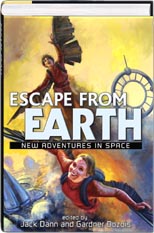Spillane and Me
My acquaintance with the Spillane oeuvre was brief. I was a teenager, staying at a mountain resort with my family. The resort's common room--- the place with the pingpong and card tables and the comfy sofa with its cracked leather cushions--- had a bookshelf where people could leave books they'd finished with, or pick up something new. Someone had put a whole shelf of Spillane there, so I read it.
It's not like this was work. The books were short, punchy, moved well, and were told with zest. They were written in a matter of days and could be read in under 90 minutes. The violence, sadism, and sex were fun if you understood that this was a comic book, not real life. Even as a teenager I knew better than to take Spillane's paranoid world-view seriously.
As mysteries, they were deficient. Mike Hammer never actually solved crimes by, say, thinking logically and following clues. He'd go around interviewing witnesses and shooting, stabbing, gut-kicking, or crucifying the various thugs and Commie spies who tried to kill him--- he averaged something like 10 corpses per book--- until about three-quarters of the way through, when he'd "suddenly realize" who the villain was, and then there would be a final one-on-one confrontation, some deeply personal violence, another body stretched on the floor, and that would be that.
But Spillane's writing could teach you a few things--- besides, of course, how to gut-shoot a beautiful woman with a .45. His stories didn't just move, they leaped and bounded and raced. His prose was inelegant but to the point--- if Hammer said something was black, it was black. If he said it was white, then it was white. End of discussion, move on. His characters went far beyond stereotype into archetype--- and when all your characters are archetypes you can save yourself a lot of prose, because there's a lot less explaining to do.
And in one book he did one really interesting literary trick. In Vengeance is Mine, the last sentence reads "Juno was a -----." (I don't want to spoil your enjoyment of the book by giving it away.)
The entire book came down to that last word. Read the last word, and it casts a completely new light on everything that went before.
Now that, I thought, was interesting.
I put the idea away in my mental card file and never read Spillane again.
Decades later, I was starting the Dread Empire's Fall series, and faced with the intimidating prospect of closely plotting three books. Spillane's literary trick somehow surfaced in my mind, and I thought, Aha!
I always like to know what I'm writing toward, and in this case I decided to send the whole story aiming straight as the slug from a .45 right toward that last . . . well, I couldn't manage word, but I did manage sentence. That last sentence is intended to be a kind of cliff on which the wave that is the narrative breaks and is reflected back, toward that which has come before.
Some people have told me I've succeeded in this.
So thanks, Mickey. When we finally meet in that great Author's Bar in the Sky, I'll buy you a slug of rye.



